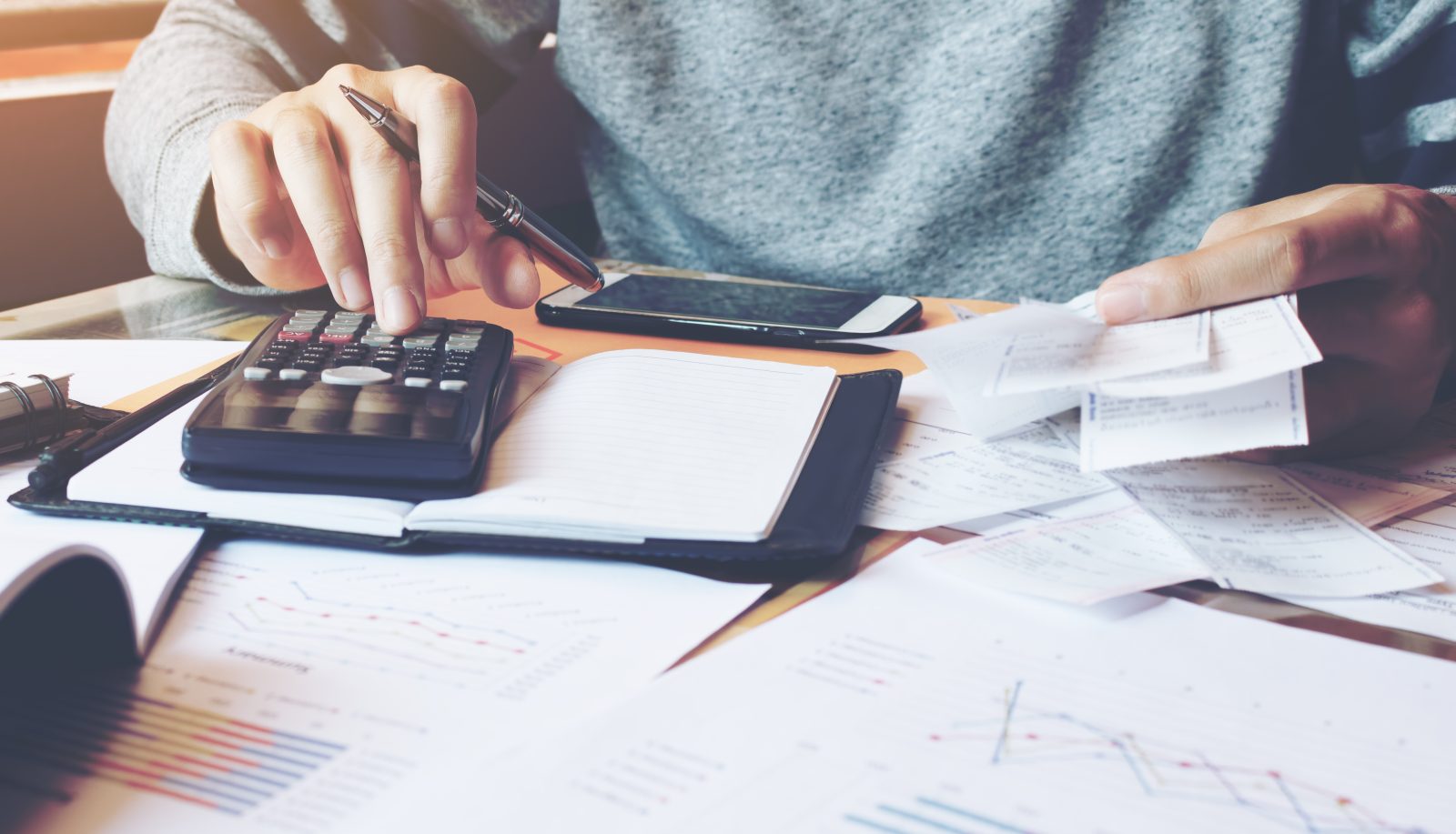As a self-employed professional, your business will be subject to running costs no matter what its size or scale. The good news is that you can offset the burden of these purchases and outgoings against your income.
The government allows businesses to claim tax relief on the majority of their expenses by deducting them from income, so you only pay tax on your profits.
However, here’s the catch: you can only deduct costs if they can be classed as an allowable expense. In this blog post, we explore what allowable expenses apply to self-employed business owners and how this impacts the amount of tax you pay so that you’re clear when it comes to your next tax return.
Allowable expenses when working from business premises
You’re only allowed to claim tax relief on expenses which relate solely to your business. If you work out of a premises which is separate to your home, it makes it a bit more straightforward to work out what you can claim.
One of the key points of claiming business expenses is the ‘wholly and exclusively for business use’ rule.
For self-employed professionals who operate from a dedicated business premises, valid allowable expenses include:
- Heating
- Lighting
- Water
- Rent payments
- Business rates
- Cleaning
- Property maintenance and repair
Costs that don’t qualify as an allowable expense (which therefore can’t be deducted from taxable profit) include the cost of alterations and improvements to the property. For instance, cosmetic renovation or initial building costs.
Self-employed allowable expenses for those who work from home
The ‘wholly and exclusively’ business expenses rule gets a bit more complicated when you work from home. You can still claim expenses, but you’ll need to make sure you only claim the proportion which relates to your business activities.
Self-employed people who work from home can claim the cost of:
- Lighting
- Gas and heating
- General maintenance to the property (in rooms that are used for business activity directly)
- Mortgage interest payments
- Council tax bills
- Internet and telephone costs
- Water – but only where applicable, substantial, and directly related to business operations. For example, if you’re a dog groomer who relies heavily on a water supply to carry out your services.
It’s important that you know what you can claim for and how to calculate your expenses. Nobody wants to miss out on tax relief they might be eligible for, or to risk HMRC finding inaccuracies in your claim! Particularly for anything on the more unusual side of an expenses claim…
Working out your expenses claim
There are two ways to work out your claim:
- Simplified expenses (otherwise known as flat rate expenses)
- The proportional costs method
Simplified (flat rate) expenses
Simplified expenses are great for those who work from home for 25 hours+ per month. You simply claim your expenses through a flat rate outlined by HMRC, which differs depending on how many hours you work from home each month.
- 25-50 hours means you can claim £10 expenses per month
- 51-100 hours means you can claim £18 expenses per month
- 101+ hours mean you can claim £26 expenses per month
Important: simplified expenses for working from home do not cover telephone or internet costs.
The costs method
The costs method, on the other hand, means you need to calculate the portion of your expenses which relate to business rather than personal use.
For example, if you have a house with four rooms and one of those rooms is your home office, a quarter of your property is used for business activity. So, if your electricity bill for the month comes to £200, you can claim a quarter (£50) of that as allowable expenses.
Things can become more complicated if there are multiple people using the same space for work. That’s why we always recommend seeking the help of a qualified tax accountant who will be able to clarify what you can and can’t claim when it comes to Self Assessment submission time.
Other allowable expenses self-employed people can claim for
As well as the expenses outlined above, there are also a number of other costs that can be claimed during the Self Assessment process for self-employed business owners.
Travel and accommodation costs
With regards to travel, you are allowed to claim:
- Travel and accommodation related to business
- Vehicle running costs including fuel, tax, insurance, maintenance, and servicing
You aren’t allowed to claim:
- Travel between your home and your regular workplace (for example, if you have an office or workshop separate to your home, you can’t claim the cost of travel to it as part of your regular commute).
- Initial vehicle purchases
- Meals outside of reasonable costs
For those self-employed with a mobile business, reasonable expense claims for journeys to and from a temporary place of work are permitted. So, for somebody who has to travel to a client’s premises, such as a plumber or a hairdresser, they are able to claim the cost of this journey as an allowable expense.
The 24-month expenses rule
If a self-employed contractor has a contract to work at a site they can claim their travel costs, but only for travel to the same location during a 24-month period.
This is because self-employed people can’t normally claim for their usual commuting costs, so the 24-month time-limit sets out to make sure things stay fair.
You can claim the travel costs as long as the intention is that it will be for no more than 24-months. So, if you start out on a 3-year contract, the intention is that this will be longer than the allowable 24-month period, and you won’t be able to claim.
Salaries and benefits
Although you can’t claim any of your own employment benefits or salary, which includes National Insurance contributions, pension, and life insurance, you can claim expenses for paying wages to any employees you have. You can also use the Employment Allowance to reduce the amount of employer’s National Insurance Contributions.
Managing your allowable expenses for Self Assessment can be complicated, especially if you’re not familiar with the dos and don’ts. Check out our accounting support hub for more help, or to ask a tax question!









4 Comments